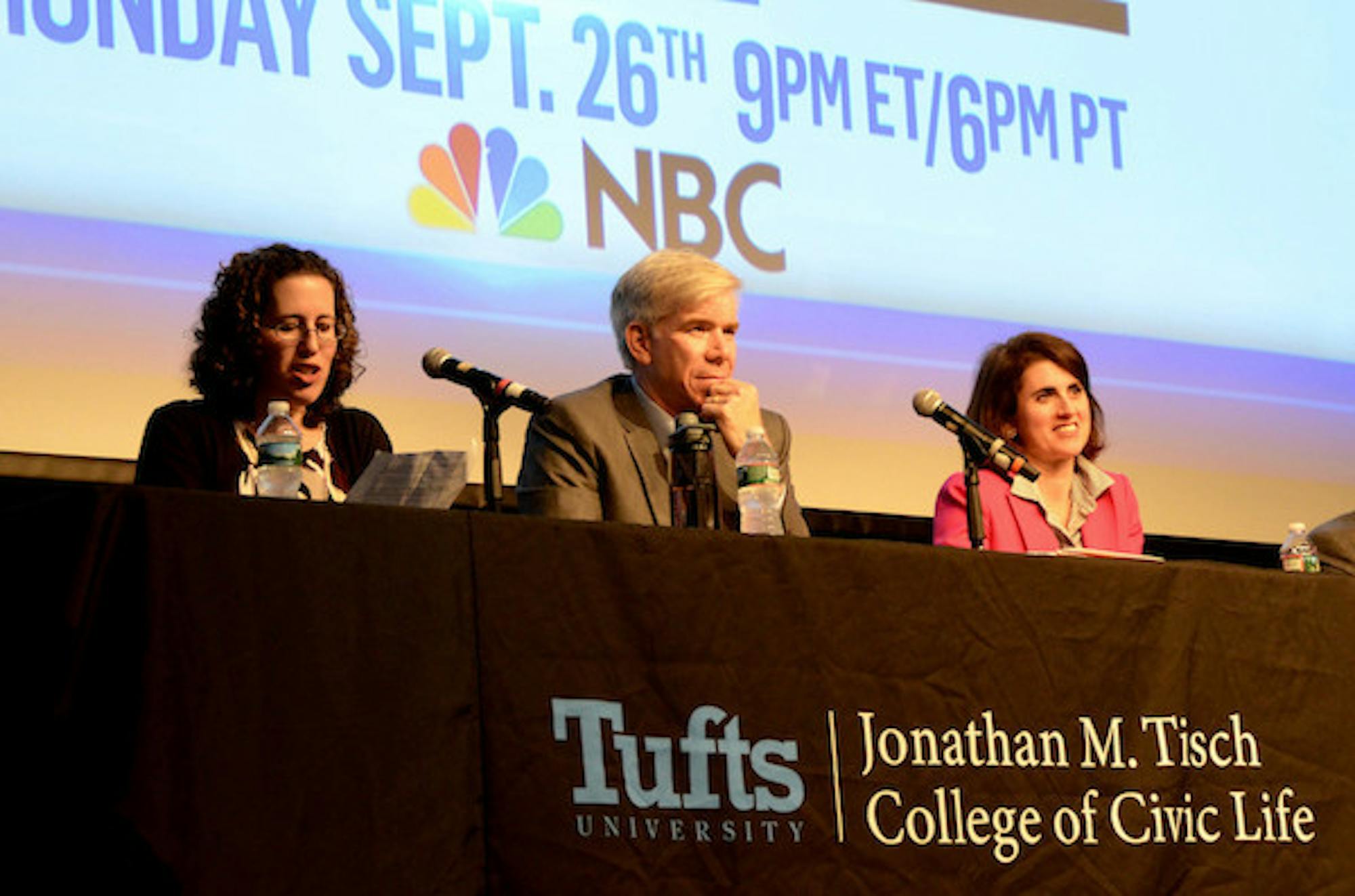The Department of Political Science hosted a Presidential Debate Watch Party on Sept. 26 from 7:45 p.m. to 10:30 p.m. in Cohen Auditorium. The screening of the first presidential debate of the 2016 election — between the Democratic presidential nominee, former Secretary of State Hillary Clinton, and the Republican presidential nominee, Donald J. Trump — was preceded by a panel discussion. Moderated by Chair of the Political Science Department Deborah Schildkraut, the panel consisted of Dean of the School of Arts and Sciences James Glaser, Associate Professor of Sociology Sarah Sobieraj, Professor of Political Science Jeff Berry and former "Meet the Press" host David Gregory.
The event was co-sponsored by the Office of the Provost, the Department of Sociology, the Experimental College, the Jonathan M. Tisch College of Civic life, Tufts Democrats and JumboVote. Chief Diversity Officer Mark Brimhall-Vargas said that he hoped the viewing party would help bridge divides between students with differing viewpoints.
Students gathered outside Granoff Music Center over half an hour before the debate began, eating pizza provided by the event’s co-sponsors and discussing the election. JumboVote also set up tables at which students could register to vote, an opportunity that many students took advantage of before doors opened at 7:45 p.m.
At 8:15 p.m., after students had filled most of the available seats in the auditorium, the event began with the panel discussion.
Gregory, who currently teaches a class through Tisch College called “Race for the White House in a Modern Media Environment," spoke briefly with the Daily before the event about the media's role in the debates, discussing the part of moderators in particular.
“My view is that fact-checking should be done in moderation,” he said. “The moderator should serve as a referee, but primarily, it’s the candidates’ job to fact check each other … the media’s fact-checking will mostly be done in the days that follow.”
Gregory lauded the journalistic skills of debate moderator Lester Holt, a former colleague of Gregory's, and expressed confidence in Holt's ability as a moderator.
Upon opening the panel, Schildkraut urged students to “keep your reactions, which may be strong, short and polite” during the debate.
The panelists discussed a wide variety of topics, including what was at stake for each of the candidates, how they should present themselves, possible gaffes or negative impressions and the media’s role in the public perception of the debate’s outcome.
The debate itself saw students in the audience predominantly responding positively to Clinton’s responses and negatively to Trump’s, often laughing or booing after his statements.
Conversations between students as they filed out of Cohen Auditorium made it clear that the overwhelming consensus among attendees placed Clinton as the winner of the night’s debate.
Brett Isaacs, a sophomore who attended the event, said she was glad for the opportunity to watch the debate in a communal setting with her peers.
“I think it's great for students to come together and watch the debate … because it provides a feeling of community, that there are other people who are also interested in the issues being talked about,” she said. “I really enjoyed that we all got to feel that community last night.”
In an effort to encourage discourse between students with differing political affiliations and candidate preferences, a facilitated post-debate dialogue titled “Reaching Out Across the Divide: Talking Politics in 2016” was held in the Alumnae Lounge on Sept. 27 at 6 p.m.






